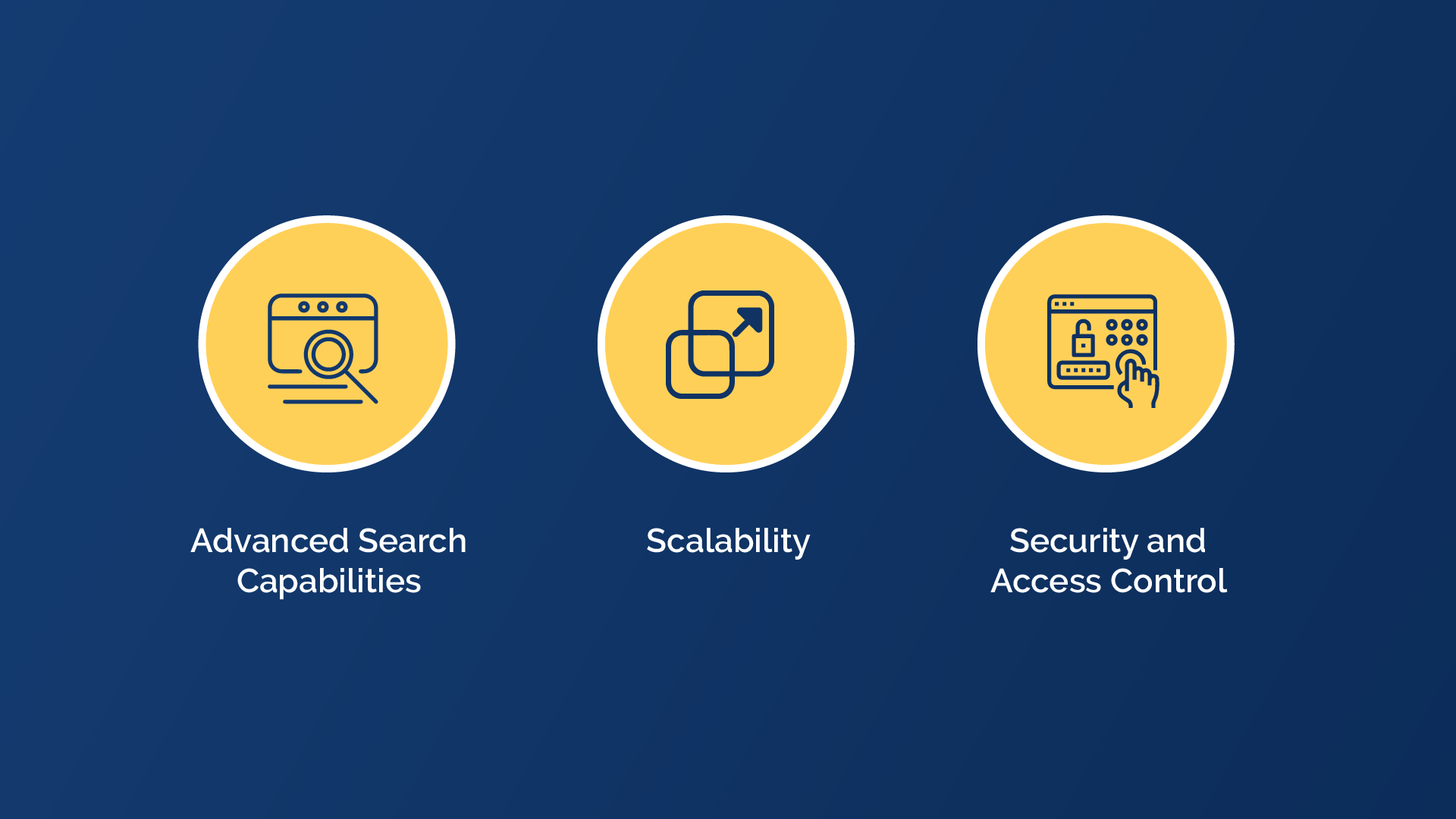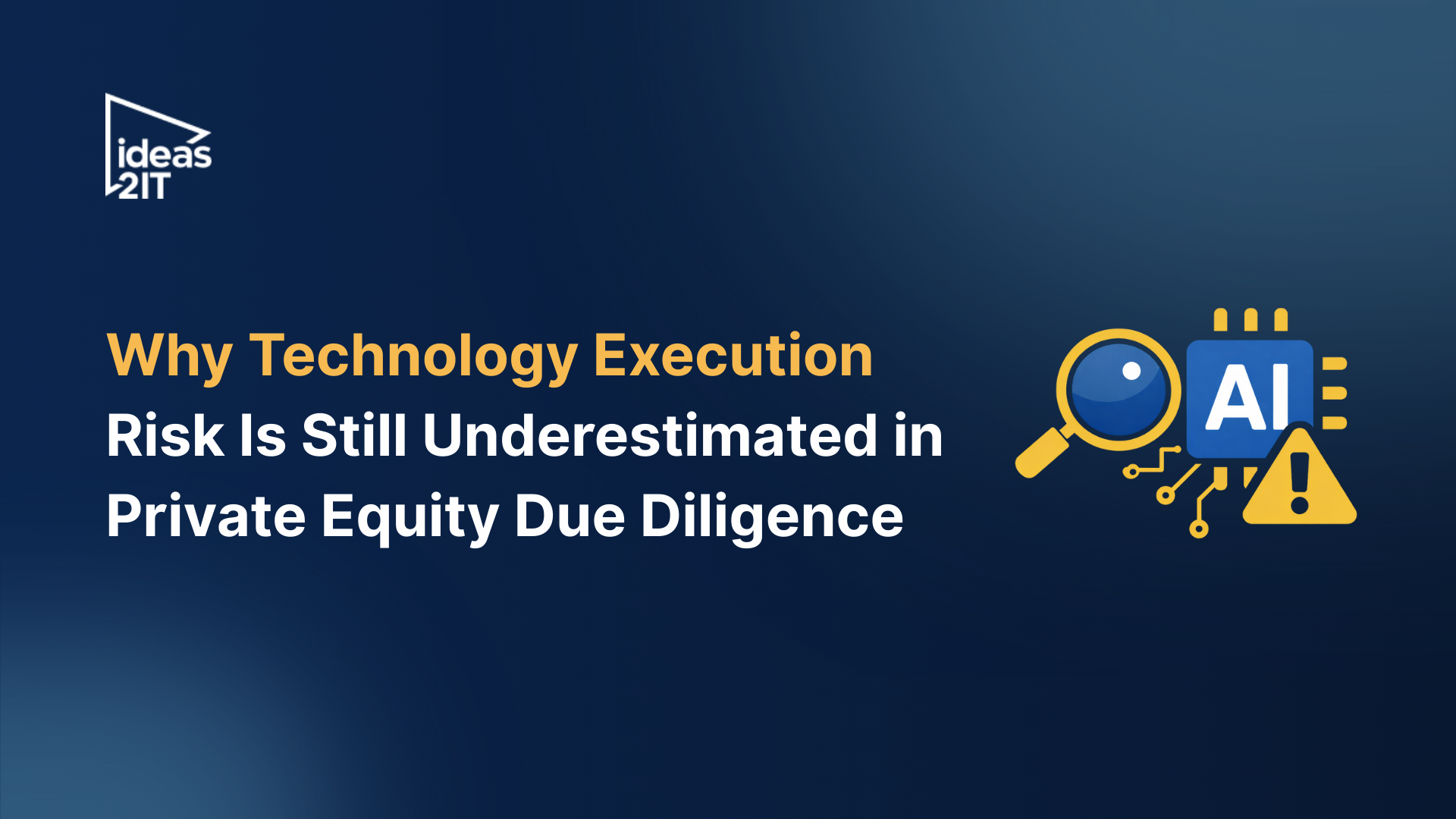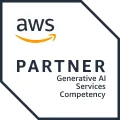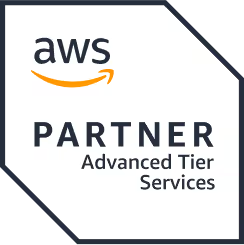Enterprise Search: Key Features, Benefits & Best Practices
TL'DR
At its core, Enterprise Search is like a supercharged search engine for businesses. It allows organizations to quickly and efficiently locate data and documents stored across various platforms and repositories.
In a world where digital information abounds, Enterprise Search is the answer to streamlining data retrieval and driving informed decisions.
This blog will provide you with a clear understanding of Enterprise Search, how it operates, its advantages, challenges, and the solutions available.
What is Enterprise Search?
Enterprise Search is a specialized search technology designed for businesses. Its primary purpose is to simplify the process of locating, accessing, and managing the vast array of data within a company's digital infrastructure.
In essence, it acts as a digital librarian, ensuring that users can effortlessly discover the information they need when they need it.
The Role of Enterprise Search in Business Efficiency and Productivity
Efficiency is the lifeblood of any business. In the context of Enterprise Search, its importance becomes twofold.
Firstly, it streamlines information retrieval, a vital function in the age of data proliferation. Efficient data access saves time and resources, offering a competitive edge.
Secondly, Enterprise Search is pivotal for informed decision-making and heightened productivity.
Accurate, timely information is the bedrock of sound decision-making. By facilitating quick access to relevant data, Enterprise Search ensures that decision-makers have the insights they require. Moreover, by reducing the time spent searching for information, it liberates employees to concentrate on strategic tasks, thereby amplifying overall productivity.
How Enterprise Search Works
Now, let's uncover the inner workings of Enterprise Search to demystify the magic that makes it tick.
Indexing and Crawling

At the heart of Enterprise Search are two fundamental processes: indexing and crawling. Indexing involves organizing and cataloging all the data within an organization.
Think of it as creating an index in a book – it helps with quick reference. During this process, data is categorized, tagged, and stored in a structured manner to facilitate rapid retrieval.
Web crawling is the engine that gathers this data. Just like a diligent web crawler traverses the internet to collect data for search engines, Enterprise Search uses its own web crawlers to navigate an organization's digital landscape. These web crawlers follow links, scan documents, and gather information from various sources, ensuring that nothing is missed.
Search Algorithms

Search algorithms are at the core of every Enterprise Search system. They are like the secret sauce that determines how search results are presented. These algorithms are responsible for identifying and ranking relevant documents based on the user's query.
One of the critical aspects of search algorithms is relevance ranking. When you search for something, you don't want a pile of random results; you want the most pertinent information at the top.
Relevance ranking algorithms analyze various factors, such as keyword matches, document popularity, and user behavior, to ensure the most relevant documents appear first.
Additionally, sorting algorithms are used to order search results. Think of this as arranging search results in a logical sequence, making it easier for users to find what they need quickly.
Key Features of Enterprise Search
In this section, we'll explore the crucial features that make Enterprise Search a powerhouse in the realm of information retrieval.

Advanced Search Capabilities
Advanced search capabilities are the backbone of Enterprise Search. They take search functionality beyond basic keyword matching and enable users to pinpoint information with precision.
Think of it as having a toolbox full of features, including filters, facets, and Boolean operators. Filters allow users to narrow down search results by specific criteria, such as date, file type, or location.
Facets help organize results into categories, making it easier to drill down into specific subsets of data. Boolean operators (AND, OR, NOT) enable users to create complex search queries, ensuring that search results are finely tailored to their needs.
Scalability
Enterprise Search systems are designed to handle vast datasets, making scalability a key feature. As organizations generate more and more data, these systems can seamlessly accommodate the growing load.
Moreover, cloud-based solutions play a significant role in this scalability. By leveraging the cloud, organizations can flexibly adjust their computing resources based on their needs, ensuring that their Enterprise Search system can handle the increasing data volumes without hiccups.
Security and Access Control
Security is paramount in Enterprise Search, especially when it comes to sensitive business data. Access control features ensure that only authorized individuals can access specific information, enhancing data security.
Among these features, role-based access control allows administrators to define who can see and interact with what data. Encryption, both in transit and at rest, adds an extra layer of protection by securing data while it's being transferred or stored.
These key features collectively make Enterprise Search not only a powerful tool for information retrieval but also a secure and scalable solution for businesses of all sizes.
Benefits of Enterprise Search
Enterprise Search isn't just a tool; it's a transformative force that can redefine the way businesses operate. In this section, we'll dive deep into the benefits it offers.

it helps with quick reference.
Enhanced Productivity
Quick access to information is a game-changer for productivity. When employees can effortlessly find the data they need, tasks are completed more efficiently, and the quality of work improves. Consider a few scenarios:
Time Savings: Imagine the time saved when an employee doesn't have to spend hours searching for a specific document buried in a sea of files. With Enterprise Search, that document is just a few clicks away.
Reduced Errors: Quick access to information minimizes the chance of errors that can occur when employees are rushed or frustrated by tedious searches.
Streamlined Workflows: Teams can collaborate more effectively when they're not bogged down by data retrieval challenges.
Improved Decision-Making
The accuracy and timeliness of data retrieval directly impact decision-making. Consider these aspects:
Faster Responses: Quick access to relevant data means that decisions can be made faster. For instance, in the financial industry, having up-to-the-minute data can lead to better investment decisions.
Reduced Risk: In healthcare, timely access to a patient's medical history can be a matter of life and death. Accurate data retrieval minimizes risks.
Competitive Advantage: In the retail sector, knowing which products are selling well in real-time can give a company a competitive edge.
Knowledge Management
Enterprise Search plays a pivotal role in knowledge management, which is essential for organizational learning and innovation. Consider these impacts:
Learning: Employees can easily access training materials, internal documents, and historical data, promoting continuous learning.
Innovation: With quick access to past projects, R&D findings, and market research, innovation is accelerated.
Addressing Data Quality Challenges in Enterprise Search
Enterprise Search, as powerful as it is, encounters various challenges that demand careful consideration and thoughtful solutions. In this section, we'll thoroughly explore these challenges and the comprehensive solutions available.
Data Quality and Relevancy
The cornerstone of effective Enterprise Search iis the quality and relevancy of the data. However, maintaining these aspects can be an intricate task, often challenged by:
Data Inconsistency: Information stored in different formats, languages, or with varying levels of accuracy can lead to search discrepancies, making it challenging to retrieve meaningful results.
Ambiguity: Some search queries may have multiple interpretations, potentially generating irrelevant or misleading results.
Outdated Data: Stale or outdated information can clutter search results, rendering them less useful for decision-making.
Enterprise Search Solutions & Best Practices
To address the challenges associated with data quality and relevancy in Enterprise Search, organizations need to implement a set of comprehensive solutions and best practices. These strategies ensure that the search system remains efficient, accurate, and valuable for users. Here are some key approaches to consider:
Data Cleansing: Regular and thorough data cleaning and standardization processes are essential. This involves validating, correcting, and transforming data to ensure uniformity and accuracy. It's a critical step in maintaining data quality.
Semantic Search: Implementing semantic search capabilities goes a step further by allowing the system to understand context and intent. It considers synonyms, related terms, and context, significantly improving the relevancy of search results.
Metadata Management: Developing a robust metadata strategy, which includes tagging and categorizing data, ensures that the search engine can index and retrieve information more accurately. This helps in addressing data inconsistency issues.
Regular Updates: A process for updating and archiving outdated information is essential to maintaining the relevance of search results.
Challenges and Considerations
Integrating Enterprise Search with an organization's existing IT infrastructure can be a complex undertaking, involving challenges such as:
Diverse Data Sources: Many businesses have data spread across numerous systems, databases, and file formats. Integrating all these sources cohesively is a significant challenge.
Legacy Systems: Older systems might not be designed to work seamlessly with modern Enterprise Search solutions, leading to compatibility issues.
Data Security: Ensuring data security and compliance during integration can be challenging, particularly when dealing with sensitive or confidential information.
User Adoption: If the integrated solution isn't user-friendly or doesn't fit well with existing workflows, user adoption may suffer.
Best Practices for Seamless Integration
APIs and Connectors: The use of Application Programming Interfaces (APIs) and connectors designed for specific systems can facilitate seamless integration. These interfaces enable data to flow between systems with minimal friction.
Data Governance: A robust data governance framework helps in addressing issues related to data security and compliance during integration.
Customization: Tailoring the Enterprise Search system to fit the existing systems and workflows is often necessary. Customization ensures that the search solution seamlessly aligns with the organization's unique needs.
User Training and Support: Providing comprehensive training and support for employees to adapt to the new system is vital for successful integration. Ensuring that the system is user-friendly and aligns with existing workflows is crucial for user adoption.
Key Takeaways
In conclusion, Enterprise Search is a game-changer for businesses, revolutionizing data management and decision-making. It's a supercharged search engine that streamlines data retrieval across platforms, driving efficiency and informed choices.
Throughout this exploration, we've covered its importance, inner workings, key features, benefits, challenges, and solutions. From enhancing productivity to fostering knowledge management, Enterprise Search offers myriad advantages.
Despite challenges like data quality and integration, solutions like data cleansing and user training pave the way for success. With its secure, scalable, and customizable features, Enterprise Search is poised to lead businesses into the digital future.
Experience the future of data management with Ideas2It's Enterprise Search solutions. Our innovative approach simplifies information retrieval, improves decision-making, and maximizes productivity, empowering your business to thrive in the digital age.







.png)

.png)
.png)
.png)
.png)












